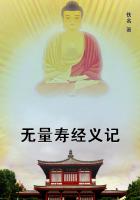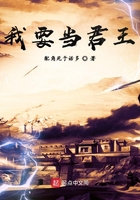"I am afraid not a week. There is not feed for the horses; and I do not know what we could eat. I have my gun, but there is not much, now, to kill."
"But I have brought meat and bread, Alessandro," said Ramona, earnestly, "and we could eat very little each day, and make it last!"
She was like a child, in her simplicity and eagerness. Every other thought was for the time being driven out of her mind by the terror of being pursued. Pursuit of her, she knew, would not be in the Senora's plan; but the reclaiming of Baba and Capitan, that was another thing. The more Ramona thought of it, the more it seemed to her a form of vengeance which would be likely to commend itself to the Senora's mind. Felipe might possibly prevent it. It was he who had given Baba to her. He would feel that it would be shameful to recall or deny the gift. Only in Felipe lay Ramona's hope.
If she had thought to tell Alessandro that in her farewell note to Felipe she had said that she supposed they were going to Father Salvierderra, it would have saved both her and Alessandro much disquietude. Alessandro would have known that men pursuing them, on that supposition, would have gone straight down the river road to the sea, and struck northward along the coast. But it did not occur to Ramona to mention this; in fact, she hardly recollected it after the first day. Alessandro had explained to her his plan, which was to go by way of Temecula to San Diego, to be married there by Father Gaspara, the priest of that parish, and then go to the village or pueblo of San Pasquale, about fifteen miles northwest of San Diego. A cousin of Alessandro's was the head man of this village, and had many times begged him to come there to live; but Alessandro had steadily refused, believing it to be his duty to remain at Temecula with his father. San Pasquale was a regularly established pueblo, founded by a number of the Indian neophytes of the San Luis Rey Mission at the time of the breaking up of that Mission. It was established by a decree of the Governor of California, and the lands of the San Pasquale Valley given to it. A paper recording this establishment and gift, signed by the Governor's own hand, was given to the Indian who was the first Alcalde of the pueblo. He was Chief Pablo's brother. At his death the authority passed into the hands of his son, Ysidro, the cousin of whom Alessandro had spoken.
"Ysidro has that paper still," Alessandro said, "and he thinks it will keep them their village. Perhaps it will; but the Americans are beginning to come in at the head of the valley, and I do not believe, Majella, there is any safety anywhere. Still, for a few years we can perhaps stay there. There are nearly two hundred Indians in the valley; it is much better than Temecula, and Ysidro's people are much better off than ours were. They have splendid herds of cattle and horses, and large wheat-fields. Ysidro's house stands under a great fig-tree; they say it is the largest fig-tree in the country."
"But, Alessandro," cried Ramona, "why do you think it is not safe there, if Ysidro has the paper? I thought a paper made it all right."
"I don't know," replied Alessandro. "Perhaps it may be; but I have got the feeling now that nothing will be of any use against the Americans. I don't believe they will mind the paper."
"They didn't mind the papers the Senora had for all that land of hers they took away," said Ramona, thoughtfully. "But Felipe said that was because Pio Pico was a bad man, and gave away lands he had no right to give away."
"That's just it," said Alessandro. "Can't they say that same thing about any governor, especially if he has given lands to us? If the Senora couldn't keep hers, with Senor Felipe to help her, and he knows all about the law, and can speak the American language, what chance is there for us? We can't take care of ourselves any better than the wild beasts can, my Majella. Oh, why, why did you come with me? Why did I let you?"
After such words as these, Alessandro would throw himself on the ground, and for a few moments not even Ramona's voice would make him look up. It was strange that the gentle girl, unused to hardship, or to the thought of danger, did net find herself terrified by these fierce glooms and apprehensions of her lover. But she was appalled by nothing. Saved from the only thing in life she had dreaded, sure that Alessandro lived, and that he would not leave her, she had no fears. This was partly from her inexperience, from her utter inability to conceive of the things Alessandro's imagination painted in colors only too true; but it was also largely due to the inalienable loyalty and quenchless courage of her soul,--qualities in her nature never yet tested; qualities of which she hardly knew so much as the name, but which were to bear her steadfast and buoyant through many sorrowful years.
Before nightfall of this their first day in the wilderness, Alessandro had prepared for Ramona a bed of finely broken twigs of the manzanita and ceanothus, both of which grew in abundance all through the canon. Above these he spread layers of glossy ferns, five and six feet long; when it was done, it was a couch no queen need have scorned. As Ramona seated herself on it, she exclaimed:
"Now I shall see how it feels to lie and look up at the stars at night!
Do you recollect, Alessandro, the night you put Felipe's bed on the veranda, when you told me how beautiful it was to lie at night out of doors and look up at the stars?"
Indeed did Alessandro remember that night,-- the first moment he had ever dared to dream of the Senorita Ramona as his own. "Yes, I remember it, my Majella," he answered slowly; and in a moment more added, "That was the day Juan Can had told me that your mother was of my people; and that was the night I first dared in my thoughts to say that perhaps you might some day love me."
"But where are you going to sleep, Alessandro?" said Ramona, seeing that he spread no more boughs. "You have made yourself no bed."















